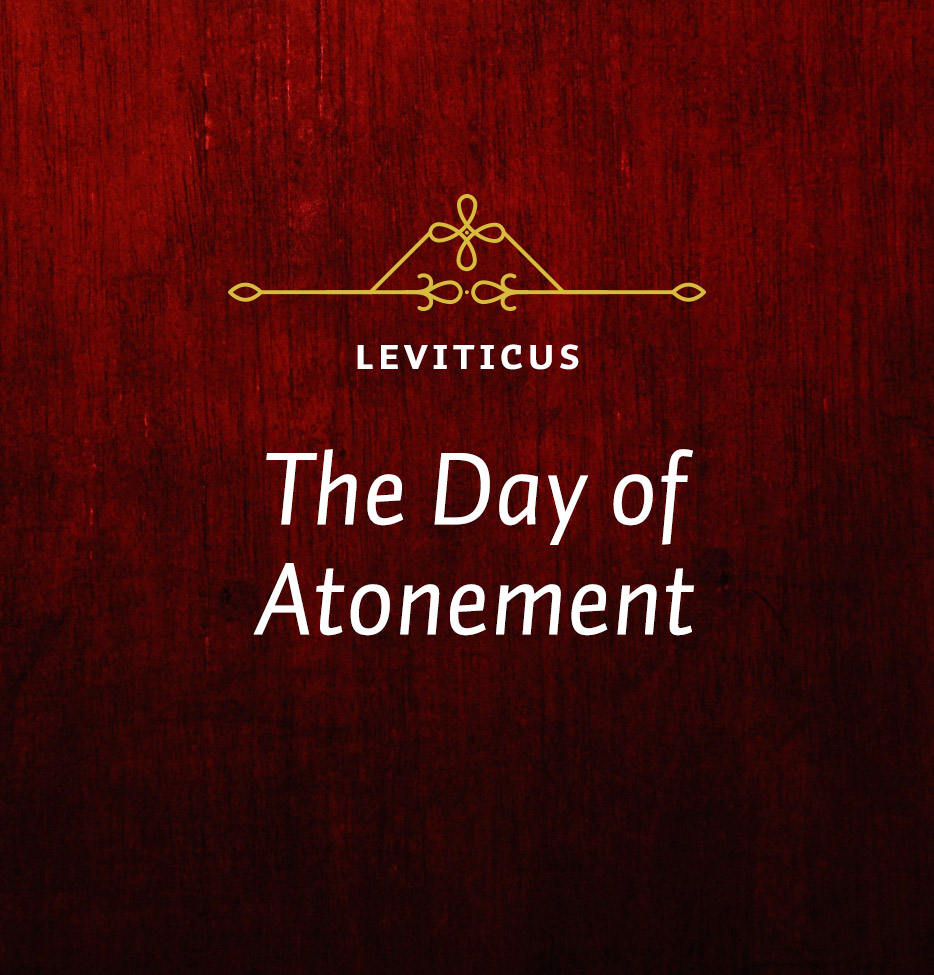It’s impossible to overestimate the importance of Leviticus 16 in the religion of the Old Testament. Its teaching about the Day of Atonement is absolutely central to the book of Leviticus. Leviticus contains the instructions for the priests and the sacrifices. And because the sacrifices are the very heart of how one becomes right before God, prefiguring the coming of the Lord Jesus Christ, this chapter is more important than anything we have studied thus far.
Unlike the other holy days, most of which were joyful celebrations, the Day of Atonement was a time of great solemnity. It was the only holy day in the year for which the people were commanded the fast. It was also the only time in the year when the high priest was able to go into the Most Holy Place of the tabernacle. Nobody else was able to go in there at any other time, and on the Day of Atonement only the high priest was able to go. The people did not go up to Jerusalem for this day. They stayed home and were to spend the day in self-examination, reflecting on themselves and their sin, and confessing their sins while the sacrifices were being made.
All of these sacrifices point forward to the coming of Jesus Christ. That is basic for the relationship between the Old Testament and the New Testament. This chapter is critical to the understanding of Old Testament religion, and therefore it is the most important chapter in the Old Testament for helping us understand what Jesus Christ actually did on the cross when He came to fulfill all these Old Testament types.
I would like to put the Day of Atonement into the context of the six great holy days or feasts of Israel, which are listed in Leviticus 23—although shorter lists occur in several other places (see, for example, Ex. 23:14-17; 34:18-22; Deut. 16). You will notice that I haven’t mentioned Purim or Hanukkah. They’re not mentioned in the first five books of the Bible because they come after them historically. Purim dates from the days of Esther and finds its origin in that book, and Hanukkah is post-Old Testament, having to do with the rededication of the temple in the year 164 BC. The Jews observe those two holidays today, and rightly so, but they are not found here in the book of Leviticus.
The very first feast of the year was the Passover and the Feast of Unleavened Bread. It was the most joyful of all the feasts because it was a memorial to the deliverance of the people from their bondage in Egypt. Like the Fourth of July for Americans or Bastille Day for the French, it was a celebration of freedom and independence.
The feast was held on the first month of the year, beginning on the fourteenth of Nisan, and it lasted for seven days. Passover itself was the first day, and then technically the Feast of Unleavened Bread began after that. So the Feast of Unleavened Bread really lasted for six days, with the other day of Passover beginning the celebration, although sometimes the Feast of Unleavened Bread is described as being seven days, which would include the Passover. So the two are together, and the reason it is called the Feast of Unleavened Bread is because at the time of the Passover, the Israelites left Egypt in such a hurry that they didn’t have time or opportunity to put the yeast into the dough so that the bread would rise.
The next feast is the Feast of Firstfruits, which occurred in the springtime near the same time as the Passover. The warm climate of the Holy Land provided for a long growing season, so they would plant several crops during the course of the year. When the first produce of the field for the first crop came in, that marked this festival of the firstfruits. The Israelites brought the first bit of the harvest and they waved it before the Lord. It was a way of dedicating the entire harvest to Him.
This idea of the firstfruits is also found in the New Testament. In 1 Corinthians 15, Paul refers to Jesus as the firstfruits because He is the first of the resurrected ones. Jesus’ resurrection becomes the promise of the full harvest, which is the resurrection of all His people to take place at the last day. In Romans 8:23, Paul calls our possession of the Holy Spirit the firstfruits, which means that the Holy Spirit a pledge of everything that we are going to have one day when we are in heaven with the Lord Jesus Christ.






